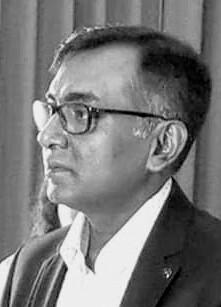Time management is very much important in IIT JAM. The eduncle test series for IIT JAM Mathematical Statistics helped me a lot in this portion. I am very thankful to the test series I bought from eduncle.
Nilanjan Bhowmick AIR 3, CSIR NET (Earth Science)- UGC NET
- English
Do provide key information on mark shorer 's - technique as discovery
do provide key information on Mark Shorer 's - Technique as discovery
- 0 Likes
- 2 Comments
- 0 Shares
-
![comment-profile-img]() >
>
-
![comment-profile-img]() >
>
Deb dulal halder Halder Best Answer
Mark Schorer believes that technique is the means by which the writer's experience, which is his subject matter, compels him to attend to it; technique is the only means he has of discovering, exploring, developing his subject, of conveying its meaning, and, finally, of evaluating it. Thus, when we speak of technique we speak of nearly everything. Schorer is very clear from the beginning of the article that only if we apply technique to the subject matter of the novel ,only then it can be called art.Otherwise it is just social experience .“The difference between content, or experience, and achieved content, or art, is technique." Schorer takes three novelists—H.G. Wells, D. H. Lawrence and James Joyce—as examples to prove his point.
Do You Want Better RANK in Your Exam?
Start Your Preparations with Eduncle’s FREE Study Material
- Updated Syllabus, Paper Pattern & Full Exam Details
- Sample Theory of Most Important Topic
- Model Test Paper with Detailed Solutions
- Last 5 Years Question Papers & Answers
Sign Up to Download FREE Study Material Worth Rs. 500/-










 >
>







Deb dulal halder Halder![best-answer]()
New Criticism focused principally on poetry, but two essays by Mark Schorer, ‘Technique as Discovery’ (1948) and ‘Fiction and the Analogical Matrix’ (1949), mark the attempt to deploy New Critical practice in relation to prose fiction. In the first of these, Schorer notes: ‘Modern criticism has shown us that to speak of content as such is not to speak of art at all, but of experience; and that it is only when we speak of the achieved content, the form, the work of art as a work of art, that we speak as critics. The difference between content, or experience, and achieved content, or art, is technique.’ This, he adds, has not been followed through in regard to the novel, whose own ‘technique’ is language, and whose own ‘achieved content’ – or ‘discovery’ of what it is saying – can only, as with a poem, be analysed in terms of that ‘technique’. In the second essay, Schorer extends his analysis of the language of fiction by revealing the unconscious patterns of imagery and symbolism (way beyond the author’s ‘intention’) present in all forms of fiction and not just those which foreground a ‘poetic’ discourse. He shows how the author’s ‘meaning’, often contradicting the surface sense, is embedded in the matrix of linguistic analogues which constitute the text. In this we may see connections with later poststructuralist theories’ concern with the sub-texts, ‘silences’, ‘ruptures’, ‘raptures’ and ‘play’ inherent in all texts, however seemingly stable – although Schorer himself, as a good New Critic, does not deconstruct modern novels, but reiterates the coherence of their ‘technique’ in seeking to capture ‘the whole of the modern consciousness . . . the complexity of the modern spirit’. Perhaps it is, rather, that we should sense an affinity between the American New Critic, Schorer, and the English moral formalist, F. R. Leavis , some of whose most famous criticism of fiction in the 1930s and beyond presents ‘the Novel as Dramatic Poem’.